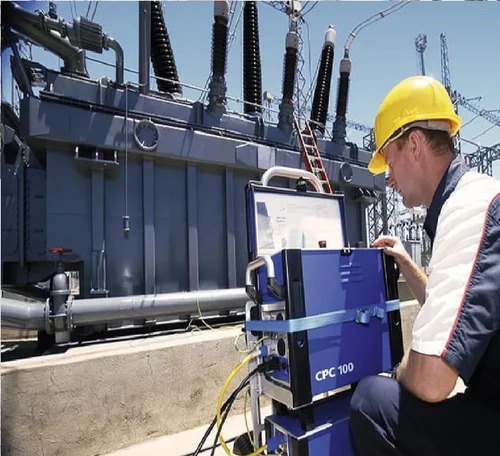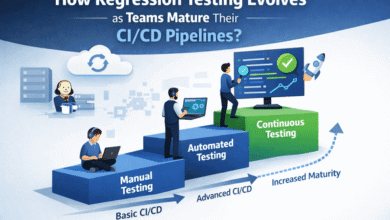Boosting Grid Safety: Inside Australia’s High Voltage Testing and Commissioning Services

Electricity is the lifeline of modern society. From homes and offices to factories and hospitals, the demand for reliable and uninterrupted power supply has never been higher. At the core of this reliability is grid safety—the assurance that high-voltage systems operate efficiently, safely, and without interruption. In Australia, where vast distances and diverse energy needs place unique demands on the grid, high voltage (HV) testing and commissioning services are essential.
These services ensure that every component of the electrical infrastructure—from transformers and switchgear to cables and protection systems—functions as intended. By identifying potential issues early and validating system performance, HV testing and commissioning protect not only equipment but also the people and industries that rely on it.
What Are HV Testing and Commissioning Services?
HV testing and commissioning involve a series of inspections, diagnostics, and performance checks conducted before and after a high-voltage system is put into service. The process ensures that new installations are safe, efficient, and compliant with Australian standards.
- Testing includes evaluating insulation, current, voltage, and other critical parameters to verify that equipment is in good condition.
- Commissioning is the final stage of a project, where systems are energized and validated under real-world conditions.
Together, these services provide confidence that high-voltage systems will perform reliably throughout their lifecycle.
Why High Voltage Testing and Commissioning Is Important
High-voltage equipment operates under intense electrical and thermal stress. Even a minor fault can lead to catastrophic failures such as equipment damage, power outages, or safety hazards. Regular testing and thorough commissioning provide multiple benefits:
- Safety Assurance: Protects workers, facilities, and the community from electrical hazards.
- System Reliability: Minimizes downtime and power interruptions.
- Compliance: Ensures alignment with Australian regulations and international standards.
- Cost Savings: Detecting issues early reduces repair costs and avoids expensive outages.
- Optimized Performance: Ensures equipment runs at peak efficiency, reducing energy losses.
For a country like Australia, with its growing renewable energy sector and wide transmission networks, these benefits are critical for maintaining grid stability.
Key Components of HV Testing and Commissioning
High-voltage systems require a variety of tests to ensure full functionality. Some of the most important include:
1. Insulation Resistance Testing
Measures the strength of insulation materials, ensuring they can withstand high voltages without breakdown.
2. Dielectric Testing
Applies controlled high voltages to verify the insulation integrity of transformers, cables, and switchgear.
3. Circuit Breaker Testing
Assesses whether circuit breakers can interrupt fault currents quickly and safely.
4. Protection Relay Testing
Validates that relays operate correctly to isolate faulty sections of the system during abnormal conditions.
5. Partial Discharge Testing
Detects small electrical discharges that could indicate insulation defects, preventing future failures.
6. Transformer Testing
Includes winding resistance, oil analysis, and load-loss tests to ensure transformers operate reliably.
7. System Functional Tests
During commissioning, systems are tested under actual operating conditions to confirm performance, efficiency, and coordination.
Role of Power System Engineering Consultants
Carrying out HV testing and commissioning requires expertise, precision, and advanced technology. This is where power system engineering consultant services add value. Consultants oversee the entire process, from planning and test execution to reporting and recommendations. Their expertise ensures that systems meet performance expectations and comply with regulations.
Beyond testing, consultants also conduct power system studies such as load flow analysis, short-circuit calculations, and arc flash studies. These insights help organizations optimize their networks and prepare for future demand.
Integration with Broader Safety Measures
While HV testing and commissioning safeguard high-voltage infrastructure, they are part of a broader electrical safety ecosystem. Other critical services include:
- Power Transformer Testing Services: Verifying transformer reliability and efficiency.
- Test and Tag Services in Adelaide: Ensuring portable electrical devices are safe to use.
- Routine Maintenance Programs: Regular inspections and servicing to prevent failures.
When combined, these measures create a holistic approach to electrical safety and grid reliability.
Benefits for Australian Businesses and Utilities
In industries like mining, manufacturing, healthcare, and data centers, uninterrupted power is non-negotiable. By investing in HV testing and commissioning, Australian businesses and utilities gain:
- Reduced Downtime: Prevents unexpected breakdowns.
- Enhanced Safety: Protects both workers and assets.
- Improved Efficiency: Optimized systems reduce energy losses and operating costs.
- Future Readiness: Systems are prepared for renewable integration and expanding demand.
- Reputation Protection: Reliable operations build trust with customers and stakeholders.
The Future of HV Testing and Commissioning in Australia
As Australia accelerates its shift toward renewable energy and smart grids, the role of HV testing and commissioning will only grow. With increasing penetration of solar farms, wind projects, and battery storage systems, ensuring grid stability is more complex than ever. Advanced diagnostic tools, remote monitoring, and digital twin technologies are enhancing the way consultants and technicians perform these critical services.
By combining traditional testing with innovative approaches, Australia is building a more resilient and sustainable grid for the future.
Conclusion
High-voltage systems are the backbone of Australia’s power infrastructure. Protecting these systems through HV testing and commissioning services is essential for safety, reliability, and efficiency. From detecting faults early to validating system performance, these services ensure that Australia’s grid continues to deliver reliable power in an ever-changing energy landscape.
With the expertise of power system engineering consultants and complementary services like power transformer testing, test and tag in Adelaide, and power system studies, businesses and utilities can safeguard operations today while preparing for tomorrow’s energy challenges.




